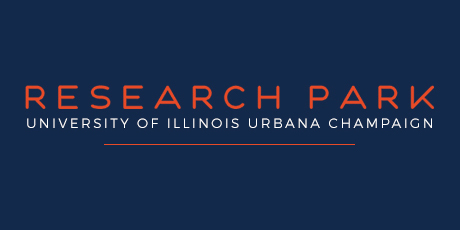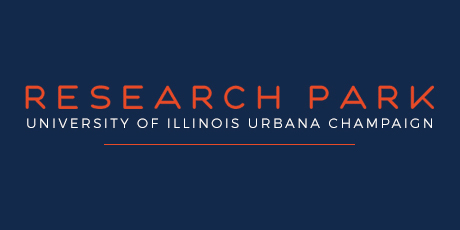-
60 Hazelwood Drive
Champaign, IL 61820 - Phone: 217-333-TECH
- Email: research-park@illinois.edu

ILLINOIS
About Cookies

About Cookies
Cookies and related technologies (herein “Cookies”) are small text files that a website saves on your computer when you visit the site. Cookies the University sets are called first-party Cookies. The data collected might be about you, your device, your preferences, or your login information. This data is mostly used to make the website work as expected so, for example, you don’t have to keep re-entering your credentials whenever you come back to the site. Cookies set by third parties are called third-party Cookies. We use third-party Cookies for analyzing website traffic and our advertising and marketing efforts. We have divided the Cookies we use into the following categories: Strictly Necessary, Performance, Functional, and Targeting. Under each category heading below you will find a general description of the Cookies in each category. You can change your browser settings to block, delete, or alert you to Cookies. The Help menu on the menu bar of most browsers will tell you how to do that. However, if you do, you may have to manually adjust preferences every time you visit a site and some features may not work as intended.
Cookie Categories
(Always Active)
Strictly Necessary Cookies
Strictly Necessary Cookies are first-party Cookies that are necessary for the website to function. They can be either permanent or temporary and are usually only set in response to actions made directly by you that amount to a request for services, such as logging in or filling in forms. For example, we use Strictly Necessary Cookies to handle user registration and login. Some sites require the use of Strictly Necessary Cookies to access the site, such as University websites requiring University credentialed authentication. If you set your browser to block or delete Cookies, you may not be able to access the site or some parts of the site will not work.
Performance Cookies
Performance Cookies allow us to count visits and traffic sources so we can measure and improve the performance and effectiveness of University websites. Performance Cookies also help the University understand which webpages are the most and least popular, see how visitors move around the site, and determine whether webpage content is relevant to user interests. Performance Cookies may be first-party or third party, permanent or temporary, and do not personally identify individual visitors. Some Performance Cookies are “analytics” Cookies (e.g., Google Analytics), using third-party software tools, which help us understand more about how our websites are used and where visitors come from by collecting and aggregating anonymous information on the pages visited and any advertisements viewed. The University does not take responsibility for the collection, use, and management of data by any third-party software tool provider unless required to do so by applicable law. If you set your browser to block or delete Cookies, some site services and functionalities may not work.
Functional Cookies
Functional Cookies enhance the performance and functionality of our websites but are non-essential to their use. These permanent Cookies allow our website to remember information from your previous visits, such as details you submitted before or your previously stated preferences. These Cookies may also be used to provide services you request, such as newsletters or publications. They may be first- or third-party Cookies that enable services we have added to our webpages. If you set your browser to block or delete Cookies, some or all of these services may not function properly.
Targeting Cookies
Targeting Cookies are used to deliver content tailored to your interests and may be temporary or permanent. They may also be first-party or third-party Cookies. Targeting Cookies are based on uniquely identifying your browser and device; they do not store information such as your name. The University may use targeting Cookies prepared by the University, its third-party contractors, or advertising partners to provide you with personalized University display advertising and promotional material about the University and its programs. The University may also allow third parties to place Cookies on your device that collect and use anonymous information about your visits to, and interactions with, our websites to personalize advertisements and promotional materials for University goods and services. Targeting Cookies may be used by our third-party contractors or our advertising partners to build a profile of your interests and show you relevant advertisements on other sites. We may share information about your use of our site with our social media, advertising, and analytics partners who may combine it with other information that you have provided to them or that they have collected from your use of their services. If you set your browser to block or delete Cookies, you will still see advertisements, but they will be less targeted to your interests.












